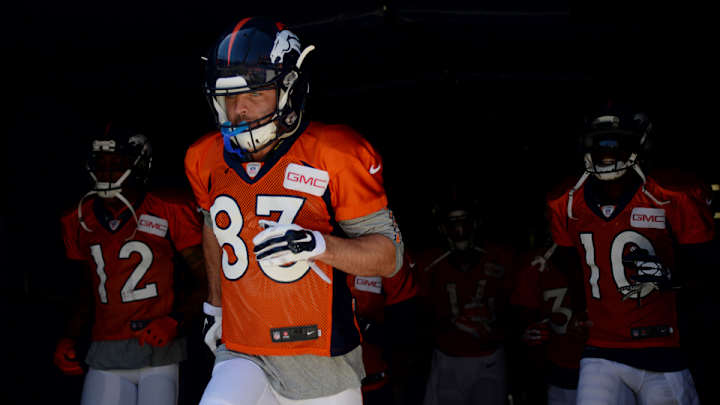NFL, NFLPA agree to implement new drug policy

On Wednesday morning, the NFL and NFLPA agreed to a new drug policy that will include testing for Human Growth Hormone for the first time. Ian Rapoport of the NFL Network was first with the report.
ESPN's Ed Werder reported Tuesday night that the league started to inform players who have satisfied the terms of their current suspensions under the former policy that they should be reinstated by Sunday. Dallas Cowboys cornerback Orlando Scandrick and Denver Broncos receiver Wes Welker, who were serving four-game suspensions for positive amphetamine tests, will have their suspensions cut in half.
In addition, Cleveland Browns receiver Josh Gordon, currently serving a season-long suspension for multiple violations of the league's drug and alcohol policies, will have his suspension reduced to 10 games (he's already served two).
After horrible week off field, NFL marches on more popular than ever
The primary point in the new drug policy is the addition of testing for HGH, which the NFLPA has been resisting since the current collective bargaining agreement was ratified in 2011. The main opposition the Players Association had lodged was that the league wasn't putting forth consistent testing guidelines and baselines, and that there was no independent arbiter to hear appeals.
HGH testing should begin by the end of the month, and according to reports, the public will not be made aware of the names of players who test positive.
Now, the NFLPA and NFL will jointly appoint and pay three to five arbitrators. The NFLPA also rejected a proposal from the league that any player charged but not convicted for driving while impaired would immediately be suspended. Instead, any player convicted or pleading guilty to driving while impaired will receive a two-game suspension.
Truths and myths about NFL's new drug policy
Scandrick and Welker will have their suspensions reduced because under the new policy, first-time positive tests for amphetamines in the offseason will no longer result in a suspension, while in-season positive tests will. Also, the threshold for a positive marijuana test will be raised from 15 to 35 nanograms per millimeter. Some players had complained that under the previous baseline, any contact with marijuana could trip a positive test.
